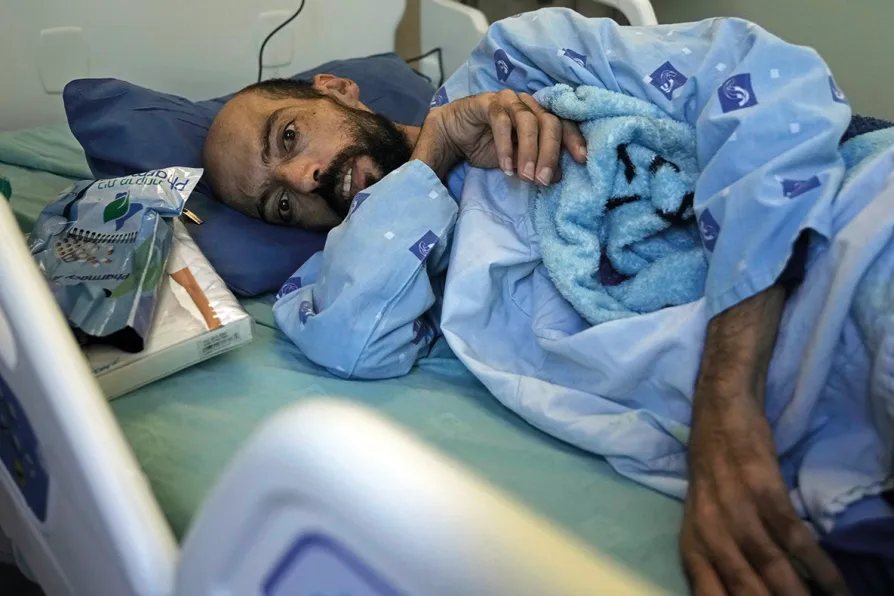From training Israeli colonels during the slaughter to protecting Israel at the UN, senior British figures should fear Article 3 of the Genocide Convention that criminalises complicity in mass killing, writes IAN SINCLAIR

 UNBOWED: Imprisoned Palestinian hunger striker Khalil Awawdeh lies in bed at Asaf Harofeh Hospital in Be’er Ya’akov, Israel, August 2022
UNBOWED: Imprisoned Palestinian hunger striker Khalil Awawdeh lies in bed at Asaf Harofeh Hospital in Be’er Ya’akov, Israel, August 2022
“AS soon as I left prison, I went to Nael’s grave. It is adorned with the colours of the Palestinian flag and verses from the Holy Quran. I told my little brother how much I loved and appreciated him, and that, one day, we would meet again in paradise.”
The above is part of a testimony given to me by a former Palestinian prisoner, Jalal Lutfi Saqr. It was published two years ago in the volume These Chains Will Be Broken.
As a Palestinian, born and raised in a refugee camp in Gaza, I was always familiar with the political discourse of, and concerning, political prisoners. My neighbourhood, like every neighbourhood in Gaza, is populated with a large number of former prisoners, or families whose members have experienced imprisonment in the past or present.
However, starting in 2016, my relationship with the subject took on, for the lack of a better term, a more “academic” approach. Since then, and up to now, I have interviewed scores of former prisoners and members of their families.
Some were imprisoned by Israel, others by the Palestinian Authority. I even spoke to prisoners who experienced the brutality of Middle Eastern prisons, from Iraq, to Syria, to Egypt and Lebanon.
A few particularly unlucky ones have endured multiple prison experiences and were tortured by men speaking different languages.

With foreign media banned from Gaza, Palestinians themselves have reversed most of zionism’s century-long propaganda gains in just two years — this is why Israel has killed 270 journalists since October 2023, explains RAMZY BAROUD

Gaza’s collective sumud has proven more powerful than one of the world’s best-equipped militaries, but the change in international attitudes isn’t happening fast enough to save a starving population from Western-backed genocide, argues RAMZY BAROUD

RAMZY BAROUD asks why it has taken so long for even left-wing voices in the West to call out what Israel is doing

RAMZY BAROUD explains why the world can no longer ignore Palestine














